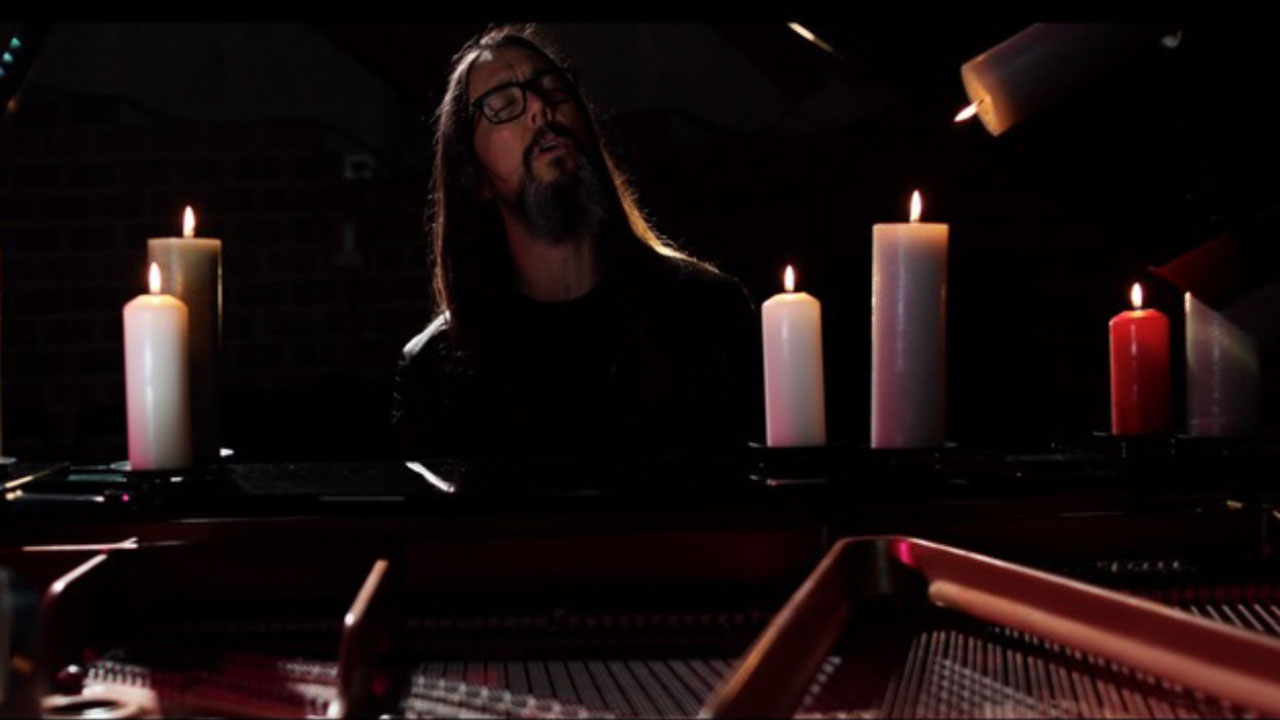“They actually asked Judas Priest to write music for it. We saw it and decided to avoid it like the plague”: The inside story of Rock Star, Hollywood’s infamous attempt to make a heavy metal movie
Loosely based on Judas Priest, Rock Star saw Hollywood trying to make a metal movie – but does it deserve the hate it gets?
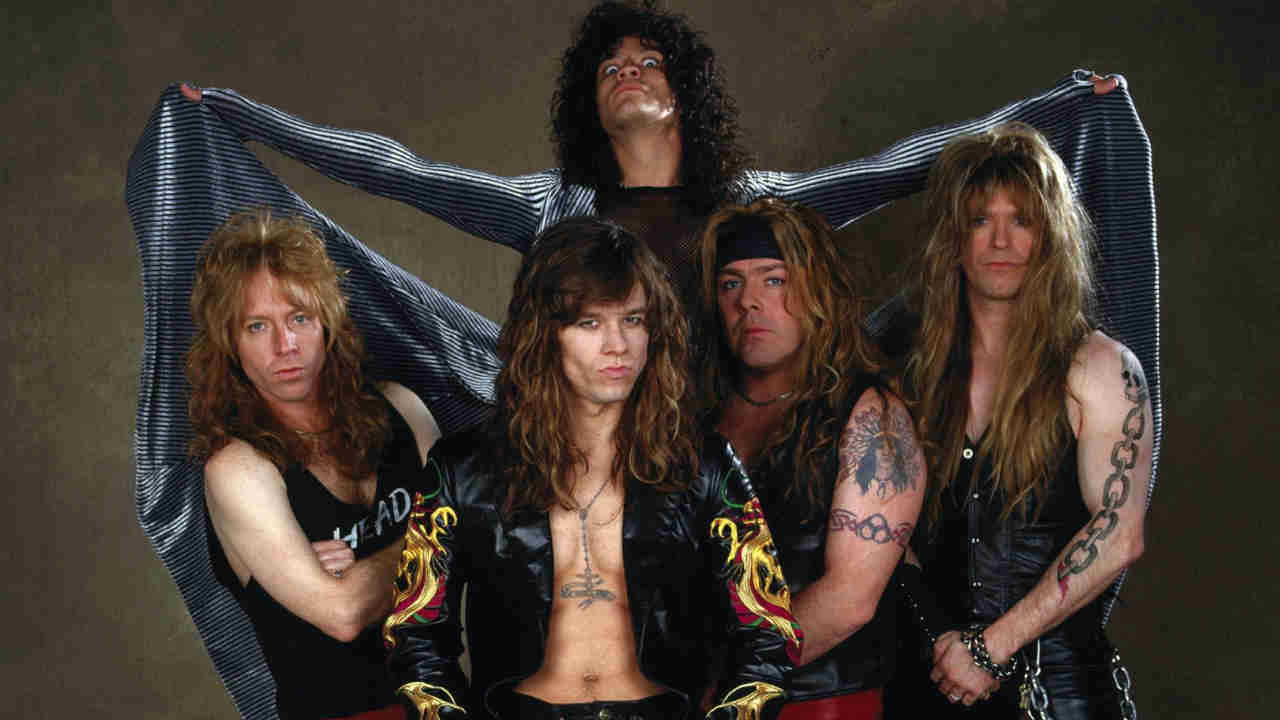
Few real-life metal bands have inspired a multi-million dollar Hollywood movie, but Judas Priest are one of them. 2001’s Rock Star was based on the true story of Tim ‘Ripper’ Owens, who swapped a Priest covers for band for the real thing after the departure of Rob Halford. In 2002 – only for the movie to receive a critical and commercial mauling. But did it deserve the hate? In 2007, Ripper plus cast members Zakk Wyle and Jeff Pilson took Classic Rock inside the making of a big screen misfire.
What’s the difference between typing 58 books backwards, eating a 12-inch pizza in 19.91 seconds and making a credible dramatic rock’n’roll movie? The answer is the first two have actually been done. There have been some classic rock comedies and documentaries, but an authentic, powerful drama remains elusive, even when it’s based on true events.
In August 1997 film producer Robert Lawrence read Andrew C Revkin’s New York Times article about Tim ‘Ripper’ Owens. Owens, from Akron, Ohio, was the singer in British Steel, a Judas Priest covers band. When two friends of Priest drummer Scott Travis saw Owens performing, they were so impressed that they contacted Travis. With Priest singer Rob Halford having left several years earlier to pursue a solo career, Priest were looking for a replacement. Owens flew to England, auditioned, and almost overnight found himself going from being the singer in a Judas Priest tribute band to fronting the very group he idolised and one of the most iconic bands in the history of heavy metal.
It’s the stuff that dreams, and Hollywood films, are made of. And so it was that the movie Rock Star was born.
The film stars Mark Wahlberg as Chris ‘Izzy’ Cole, singer with Blood Pollution, a tribute band for his heavy metal heroes Steel Dragon. When Dragon’s singer Bobby Beers (Jason Flemyng) quits, Cole auditions and becomes Steel Dragon’s singer. But he comes to realise that having your dreams come true isn’t everything.
Rock Star, which also stars Jennifer Aniston, Dominic West, Timothy Olyphant, Timothy Spall and Ozzy Osbourne/Black Label Society guitarist Zakk Wylde, who plyas Ghode, the guitarist with Steel Dragon, the group loosely based on Judas Priest, prompts a variety of opinions from those involved.
“It had kind of the cheese factor a little too much,” is Owens’s verdict of the film he inspired. “I think it would have been better if it was a little bit more on the serious side instead of the Spinal Tap side. Still, pretty funny movie,” he adds.
Sign up below to get the latest from Classic Rock, plus exclusive special offers, direct to your inbox!
Jeff Pilson is a little more generous. Pilson, whose resume as a bassist includes stints with Dokken, Dio and MSG, and who is now with Foreigner, plays Steel Dragon’s bass player Jorgen. “I was more entertained than I thought I was going to be,” he says. “Is it exactly like the 80s? No. They did it in a nice way where it’s a little bit of a parody, a little bit of a tribute. They took some liberties with it, but all in all I think they did a great job.”
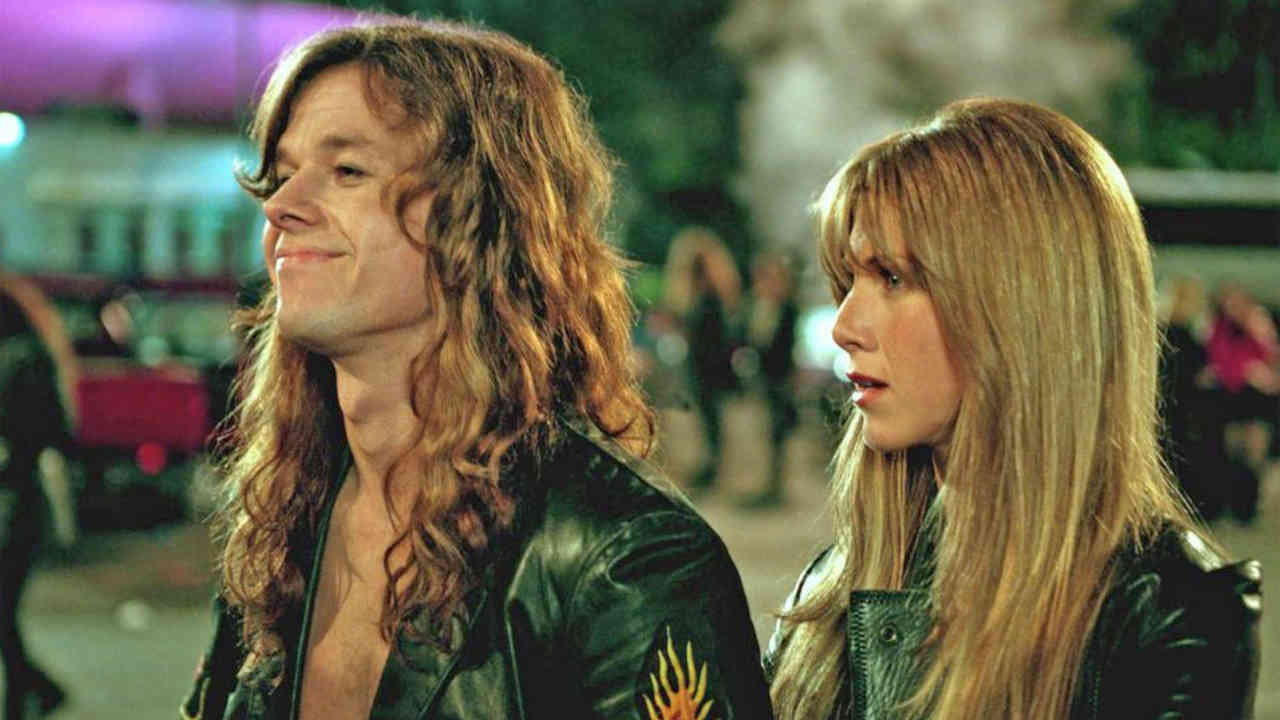
Making up Steel Dragon’s line-up on drums is Pilson’s Foreigner bandmate Jason Bonham. The long list of musicians appearing in the film also includes Third Eye Blind singer Stephan Jenkins, Slaughter drummer Blas Elias, The Verve Pipe’s Brian Vander Ark, Black Label Society guitarist Nick Catanese, and Myles Kennedy, singer with Alter Bridge. That Rock Star features so many legitimate, recognised musicians certainly lends it a degree of credibility. It also helped director Stephen Herek, who was able to pick their brains.
“He was always tremendously open and came to us all the time,” Pilson says of Herek. “They asked for suggestions; they asked how things would go down. I was so impressed how Stephen listened to what we had to say.” However, Pilson says the scene in which Wahlberg’s character Izzy wakes up in a hotel bedroom strewn with naked bodies was overdone. “The orgy scene was definitely an exaggeration,” he laughs. “But, hey, it’s Hollywood, you gotta make it entertaining. Any chance to parade around topless, you got to do it.”
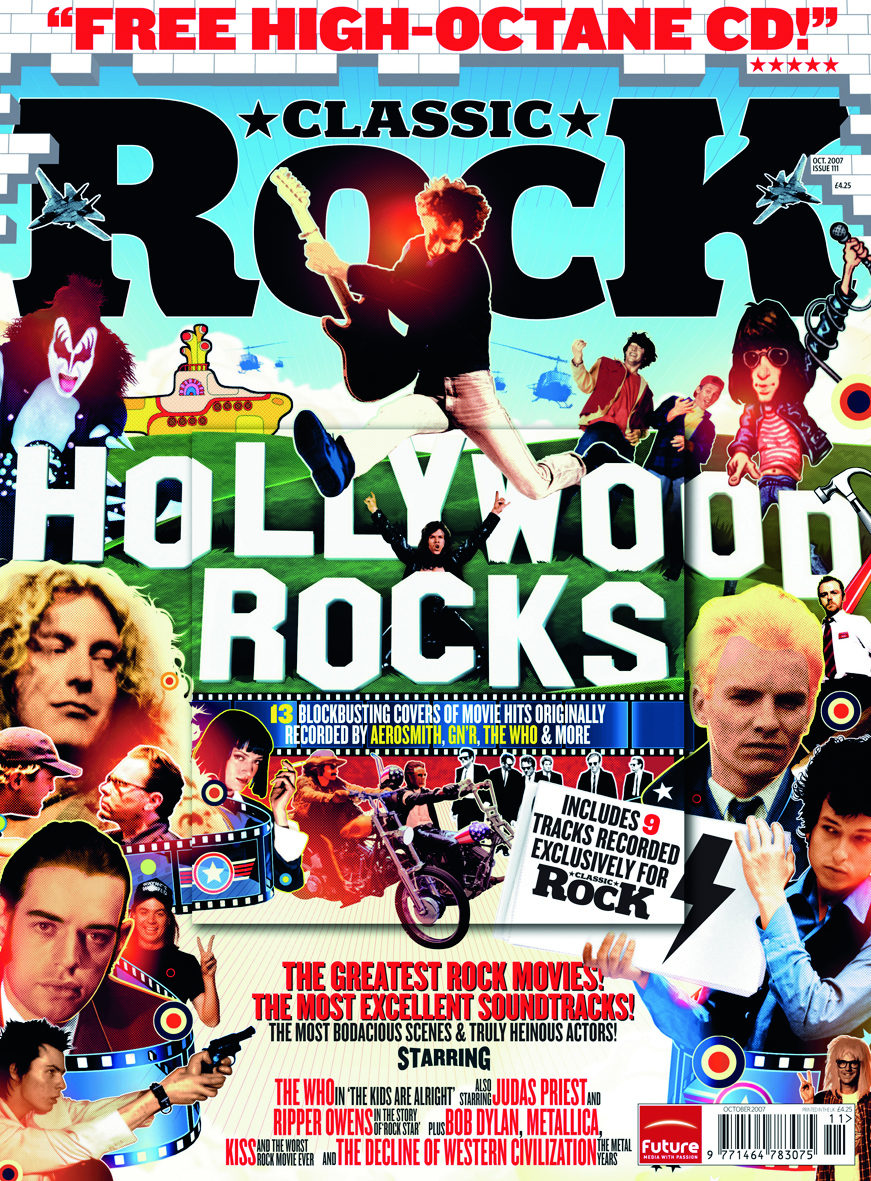
Striking a successful balance between realism and entertainment has been notoriously difficult with rock movies. When the film centres on an 80s metal band, the dangers are even more apparent.
“I think it’s very hard because there’s such a tendency to do Spinal Tap,” concedes Rock Star’s screenwriter John Stockwell. “Yes, it’s a parody, but there were some aspects that were very honest and real. So there’s this fine line where movies can seem like they’re being kind of satirical, but to me they’re kind of comical, and I think that’s the danger of rock’n’roll movies.”
Stockwell was well aware of the spectre of Spinal Tap when he was hired by Warner Bros to write the script: “I loved Spinal Tap, but I was hoping there was a way to find a grittier, raw version of the real world.”
To get a first-hand taste of the debauched and crazed world he was writing about, Stockwell went on the road with Pantera. “It was the longest three days of my life,” he quips. “It took me three months to recover.” It was more this kind of experience Stockwell was striving for, “more a version of what it was like to be around the guys from Pantera. I didn’t want it to be goofy, and that’s what rock movies can be often be.” When asked how he views Rock Star now, he concedes: “Kind of goofy.”
Jayne Andrews, a representative from Judas Priest’s management company, was rather more critical: “It was a rubbish film. I found it insulting.”
During Rock Star’s embryonic development, the producers approached Judas Priest. “They actually asked us to write music for it,” recalled Priest guitarist Glenn Tipton. “We saw some of the roughs for it and we decided to avoid it like the plague.”
In a nod to the film’s origins, it was provisionally titled Metal God after the Priest track Metal Gods, but when it was clear the group would have no artistic input Priest pulled out of the project.” We’d be giving them permission and wouldn’t have any control,” Andrews explains.
In the end, the group’s fears were realised. “It’s a terrible case of Hollywood taking a very good idea and really just blowing it with nonsense,” Tipton bemoans. Rob Halford was equally disappointed: “I think it would have been a great opportunity to make something a bit more realistic. But that’s Hollywood isn’t it? Clueless.”
Despite the threat of legal action if Judas Priest were referenced in the film, there’s a scene involving what director Stephen Herek describes as a “tribute to Judas Priest”. When a star-struck Izzy attends the Steel Dragon audition at the home of the group’s guitarist Kirk Cuddy (Dominic West), he admires a mannequin clothed in a metal-studded waistcoat and leather hat. “That was a little bit of an homage to the Judas Priest costumes,” Herek reveals on the DVD of the movie. One obvious parallel between Priest and Steel Dragon is that both bands have a gay singer, although Beers’s revelation comes only when he quits the band, unlike the situation with Priest. “We knew from day one Rob was gay,” says Andrews.
While the musicians who inspired the film wanted nothing to do with it, there were others who were only too happy to take part. Zakk Wylde recounts being approached by the filmmakers: “They said: ‘Zakk, do you want to be in a movie?’ I’m like: ‘What is it you want me to do?’ They were like: ‘Well, basically you can drink beer all day, lift weights, play guitar, do some shotguns.’ I’m like: ‘You’re going to pay me for this?’ I said: ‘Can you include the gay brothel? Because then I’m definitely in – no pun intended.’”
Several weeks before the cameras began to roll, Wylde, Jeff Pilson and Jason Bonham entered a studio to work over a selection of songs written by various artists including Sammy Hagar, Desmond Child and Twiggy Ramirez, one-time bassist for Marilyn Manson and now with Nine Inch Nails. “Our job was to arrange the stuff that was there to be like one band,” Pilson explains, “because it was coming from numerous different writers and their demos were all scattered.”
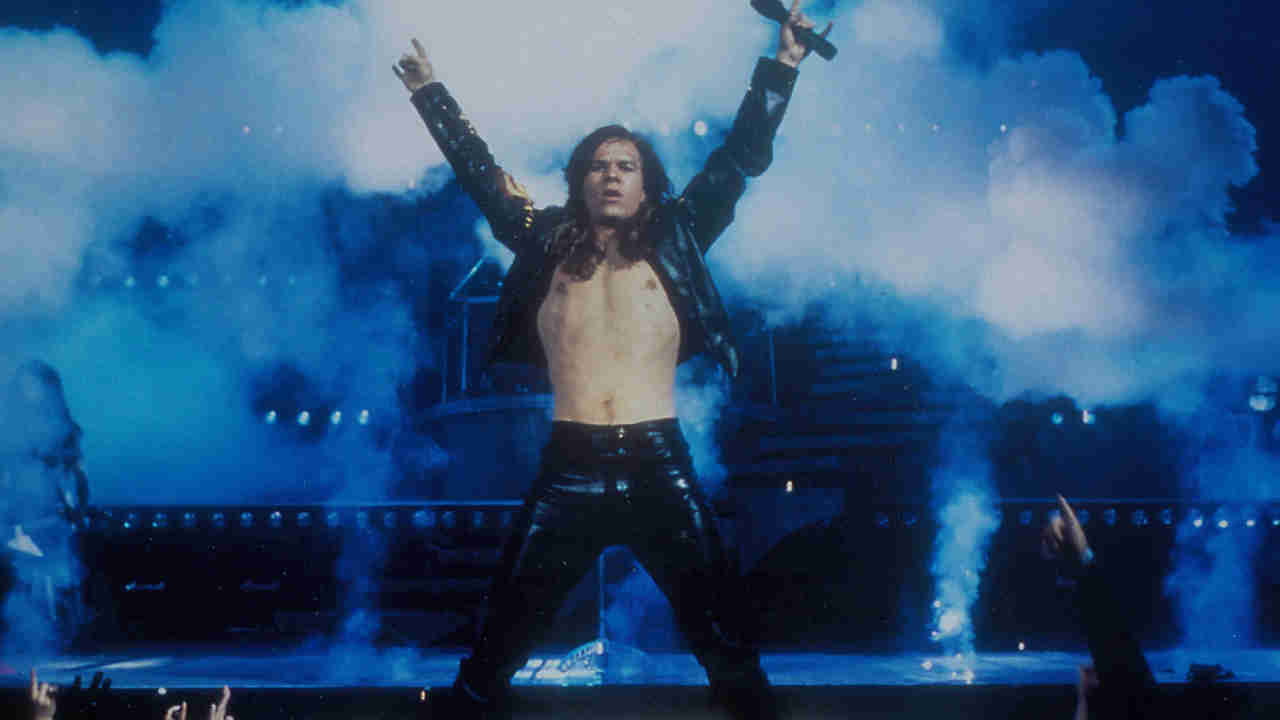
With multiple scenes showing the band performing, including one concert filmed in front of 11,000 paying extras, it was essential to create a sense of unity. “They wanted the band to feel as much like a real band as possible,” says Pilson. “They wanted us to go in and record songs like a band does and rehearse songs like a band does and write songs like a band does.”
And, just like bands do, they had some prickly moments. “Zakk and Jason at first really didn’t get along,” Herek reveals. “Jeff was really helpful at keeping a certain peace between the two.” But this is Hollywood, so inevitably there’s a happy ending. “They eventually became good friends.”
The three did write some songs together, although in the end they weren’t included in either the film or on the soundtrack which, along with the tracks performed by Steel Dragon, features some classic 80s rock including Bon Jovi’s Livin’ On A Prayer, Mötley Crüe’s Wild Side and Lick It Up from Kiss.
Despite emerging in the early 90s as the singer with Marky Mark And The Funky Bunch, Mark Wahlberg’s voice wasn’t deemed to be up to the task of belting out paint-peeling rock, and the majority of Steel Dragon’s vocals are by Steelheart’s Mike Matijevic and former Yngwie Malmsteen and Journey vocalist Jeff Scott Soto.
For rock’n’roll musicians whose lifestyle and hours tend to be, well, irregular, adjusting to the more disciplined regimen of film acting was something of a shock. “It’s almost like taking a rugby player and taking a figure skater,” explains Wylde. “They’re both athletes, but a rugby player can’t do what a figure skater does; and if you take a figure skater and put them out on a pitch with a bunch of rugby motherfuckers…” No prizes for guessing who are the rugby players in that analogy.
Once Wylde and Pilson adjusted to starting work at 5.30am instead of going to bed at that time, both enjoyed the experience. “We all had a great time,” says Pilson. The cast got along great. “All sweethearts,” adds Wylde.
The only slight problem Wylde had was with his hair. “They were like: ‘Zakk, would you mind layering your hair for the movie?’ ‘I’d be like: ‘Excuse me? Let me explain something to you. When this fuckin’ movie’s done, reality sets back in, baby. I’ve gone through the gay, poofy hair [phase], and if you think I’m going back there again you are out of your fuckin’ mind.’ I said: ‘You’re making wigs for everybody else on this fuckin’ set, make me a fuckin’ gay, poofy layered hair thing. Coz when I’m finished with this thing, I’ve got to get back out on the road. I already look gay enough when I get up on stage. I said: ‘Fuck you.’
“They were like: ‘Well, you don’t have to get so offended.’ I go: ‘Yeah I do, because this is what I do for a living; I’m not a fuckin’ movie star.’”
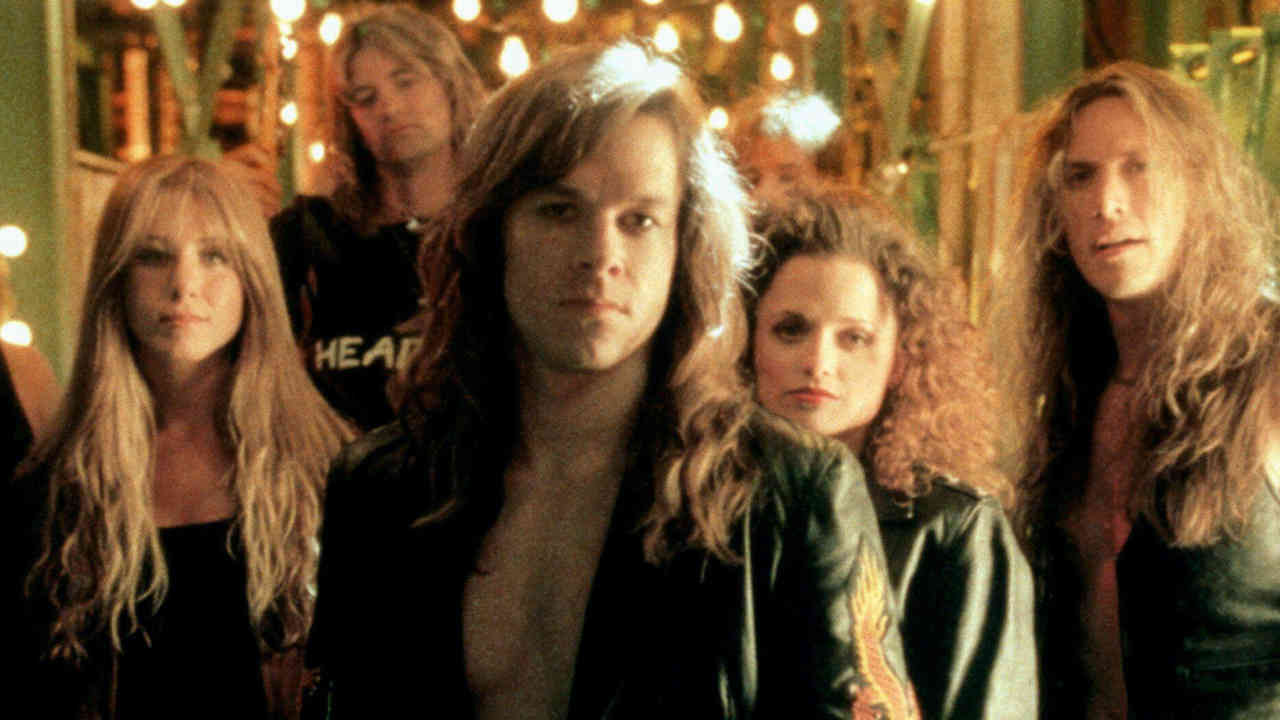
Wylde isn’t the only one who had coiffure concerns. “I think Mark Wahlberg’s a genius,” says Stockwell. “But the hair was always an issue for me,” he says of Wahlberg’s long locks. “I wish he had had the shaved head like Rob Halford, because the extensions and that hair were always a little cartoonish.”
Wahlberg didn’t have so much of a problem, and in fact found it helped. “The hair is almost like a licence to do what you want,” he says.
Universally praised for his performance, Wahlberg was in fact the second choice for the part of Izzy, with Brad Pitt initially being linked with the role. So what did Tim ‘Ripper’ Owens, who Wahlberg was playing the part of, think of Wahlberg’s portrayal? “I think he did a good job.”
The two of them never actually met, although had they done so Owens thinks Wahlberg “would have changed things a little,” adding: “I think we’re more similar than further apart.” One area in which the two aren’t similar, however, was physiologically. “I definitely don’t have abs like him,” Owens laughs.
Another key element in capturing the look of the times was the figure-hugging trousers. But for many of the actors, discomfort was a high price to pay for the authenticity. “All the guys were having a hard time with the tight pants,” says Herek. “They would rip.” Wahlberg, for one, was certainly glad when he no longer had to struggle with his sartorial sensibilities and his trousers. “I just hope tight pants don’t come back.”
One of the criticisms levelled at the film is that it offers a sanitised version of the realm it is depicting. Even so, it received an R (Restricted) rating in America, preventing anyone under 17 attending without being accompanied by an adult.
“It’s pretty hard to not be a hard R if you’re accurately portraying the antics and the backstage world of heavy metal,” says Stockwell. “I would have understood it if they were going for a PG 13, but it got an R, though it was a very soft R.”
An indication of the film’s wholesome approach was clear during filming. Renowned photographer (and Classic Rock contributor) Neil Zlozower played a photographer shooting Steel Dragon. The scene is one of many filmed at the legendary Ambassador Hotel in Los Angeles, famous for being where Robert F Kennedy was assassination in 1968. When the effusive Zlozower arrived on set, having not been bothered to read the script (“I’ve got better things to do with my time” ), he offered them a choice: “I asked them if they wanted the good, X-rated version of Zloz or the tamed-down version, and they wanted the tamed-down version.”
The unfortunate timing of the release of Rock Star had little to do with the competition it faced from other films. The film premiered on September 7, 2001. Playing on 2,525 screens nationwide on its opening weekend, it was No.4 at the box office and made $6m. Then two aeroplanes crashed into New York’s Twin Towers and altered the future of the US – and of Rock Star and a lot more.
“The movie just stopped. Everything just stopped,” Owens remembers. “I didn’t do any more promotion on it after 9/11.”
“By Tuesday nobody’s even leaving their house. LA, America, was a ghost town,” says Zlozower.
Even though writer John Stockwell had a vested interest in the film’s fortunes, he was able to maintain a sense of perspective. “However sorry any of us were feeling about its performance was suddenly unimportant on September 11.”
In the end the film went on to make a little under $17m, less than half its $38m price tag.
Although both a critical and financial failure, Rock Star offers an affectionate and nostalgic look at a notoriously hedonistic and extravagant period in rock history, and has gone on to acquire a place in the hearts of many, not to mention having frequent airings on cable TV.
“I talk to a lot of people that tell me Rock Star’s their favourite movie,” says Zlozower.
For Pilson the outcome was a pleasant surprise. “My first reaction when I saw it was: ‘Wow, this is actually better than I thought it was going to be.’ You always assume music movies are going to be cheesy, and it wasn’t as bad as most.”
Stockwell, too, despite some reservations, admits to being “completely proud of it”. Even Zakk Wylde, who walked out of the premiere after announcing: “This is gay. Let’s get the fuck out of here,” was more forgiving when he finally watched the film on a flight: “Actually, I think Stephen and the guys did a great job.’
And what of Tim ‘Ripper” Owens, who, despite having his life depicted on screen, received no acknowledgement or money? “Not a dime.” But he harbours no bitterness or regrets. “I’m still honoured. And hopefully one day they’ll make a movie about them making a movie about me,” he laughs.
Originally published in Classic Rock issue 111, September 2007
Kevin Murphy is a writer, journalist and presenter who's written for the Daily Telegraph, Independent On Sunday, Sounds, Record Mirror, Kerrang!, Metal Hammer, Noise, Select and Event. He's also written about film for Empire, Total Film and Directors Guild of America Magazine.


